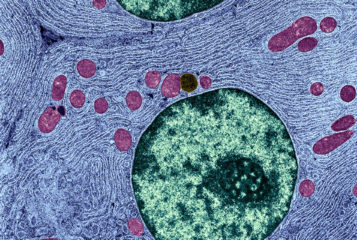A test which measures mitochondrial DNA (mtDNA) levels in the embryo could help increase IVF success rates, scientists claim.
Researchers at the University of Oxford have found that blastocysts containing high levels of mtDNA have a reduced chance of implantation. Conversely, they found that three-day embryos with high levels of mtDNA were more likely to implant, leading them to develop a test that could be used in IVF to select embryos most likely to go on to form a pregnancy.
'No one can dispute that IVF has been tremendously successful. If you go into any classroom at least one child will have been born through IVF,' Professor Dagan Wells, NIHR Oxford Biomedical Research Centre, Oxford. 'However it is still the case that many patients don't get pregnant, and some patients have many cycles and never come away with a baby. That has high emotional and financial implications. We're not very good at picking out which embryo will give rise to a baby.'
In the study presented at the 71st Annual Meeting of the American Society for Reproductive Medicine, Professor Wells and his team used quantitative PCR and next-generation sequencing to analyse the mtDNA content of 352 blastocysts and 39 cleavage-stage embryos from 205 couples undergoing IVF. They found that blastocysts establishing viable pregnancies contained significantly lower levels of mtDNA than embryos that did not implant, observing a threshold of mtDNA quantity above which implantation did not occur.
'Based on our findings we have devised a test whereby a small number of cells, carefully removed from an embryo, can be measured for the amount of mitochondrial DNA present,' Dr Elpida Fragouli, of US firm Reprogenetics, which led the research.
The study also revealed that cleavage-stage embryos from younger women's eggs contained more mtDNA than was present in older women's eggs, but also that blastocysts contained higher levels of mtDNA the older the patient. Aneuploid embryos were also shown to contain higher levels of mtDNA, independent of the age of the patient.
Trials of the test, named MitoGrade, are currently ongoing in the USA. Data from 100 US patients suggests that MitoGrade could raise the chance of selecting a viable embryo by ten percent. Researchers are applying to the Human Fertilisation and Embryology Authority for a licence to offer the test in the UK, which would be performed alongside preimplantation genetic screening (PGS), at an estimate additional cost of £200.
Professor Tina Buchholz, scientific director of the International Federation of Fertility Societies, New Jersey, USA, who was not involved in the study, said: 'The study offers a very interesting approach and it is certainly important to follow this up. So far however, this is a small study, and doesn't provide sufficient evidence to implement in clinical practice. It is not certain whether the result in one or a few cells is reflected throughout the whole embryo. We definitively need more research on this, and at this stage, I would be cautious in predicting this as a new biomarker.'
Sources and References
-
New DNA test for embryos could boost IVF success rates
-
New British test for IVF patients could increase chance of conception by 75pc
-
The More Mitochondria in a Blastocyst, the Less Likely It Is to Implant
-
IVF test could more than double success rate to over 80 per cent
-
The biological and clinical impact of mitochondrial genome variation in human embryos






Leave a Reply
You must be logged in to post a comment.